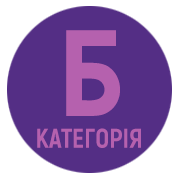DIDACTIC GAMES AS A MEANS OF DEVELOPING DESCRIPTIVE VOCABULARY OF YOUNGER SCHOOLCHILDREN WITH INTELLECTUAL DISABILITIES
DOI:
https://doi.org/10.32782/inclusion/2023.2.1Keywords:
descriptive vocabulary, primary school students with intellectual disabilities, didactic game.Abstract
The article provides an overview of the theoretical foundations on the problem of developing descriptive vocabulary through didactic games. Features of the formation of descriptive vocabulary of younger schoolchildren with intellectual disabilities are described. The characteristic features of speech of children of this category are considered, such as poor vocabulary, inaccurate use of words, difficulties in updating the dictionary, violations of the process of organizing semantic fields. It was found out that due to the peculiarities of cognitive activity of this category of children, one of the most effective means of their development is didactic games, since they contribute to the activation of speech and educational activities, a positive attitude to learning and speech development, which occurs in the game and therefore is invisible to the student himself. Types of didactic games that are aimed at developing students’ speech are considered. Games for developing descriptive vocabulary are offered. The directions of activity on the formation of descriptive vocabulary of younger schoolchildren with intellectual disabilities are described: expansion, actualization, clarification of passive and active vocabulary of nouns, verbs, adjectives, adverbs; formation of lexical consistency and semantic fields, development of antonymic, synonymous relations, unambiguous and polysemous words, homonyms, formation of generalizing concepts. The article summarizes the methodology and features of using didactic games for the development of descriptive vocabulary of younger schoolchildren. For successful education and upbringing of these children, it is necessary to awaken their interest in educational activities and activate their activities. Despite the fact that the game activity of children with developmental disabilities is very peculiar, speech therapists widely use various game technologies to correct the cognitive activity of this category of children. The proposed didactic games can be actively used for the development of descriptive vocabulary by speech therapists in correctional and developmental classes, teachersdefectologists – in primary classes of a special school, teachers – in inclusive classes, during lessons on speech development, Ukrainian language, natural science, social orientation and parents of children with intellectual disabilities at home.
References
Боряк О.В. Діагностика, формування й корекція мовленнєвої діяльності дітей із порушеннями інтелектуального розвитку молодшого шкільного віку: теорія і практика : монографія. Суми : Вид-во СумДПУ імені А.С. Макаренка, 2018. 458 с.
Докучина Т.О. Індивідуальний підхід до проведення дидактичних ігор з дітьми з особливими освітніми потребами. Актуальні питання корекційної освіти. Педагогічні науки. 2017. № 9 (2). С. 56–64.
Косенко Ю.М. Сутність дидактичної гри як методу навчання. Педагогічні науки: теорія, історія, інноваційні технології. 2011. № 8 (18). С. 184–191.







